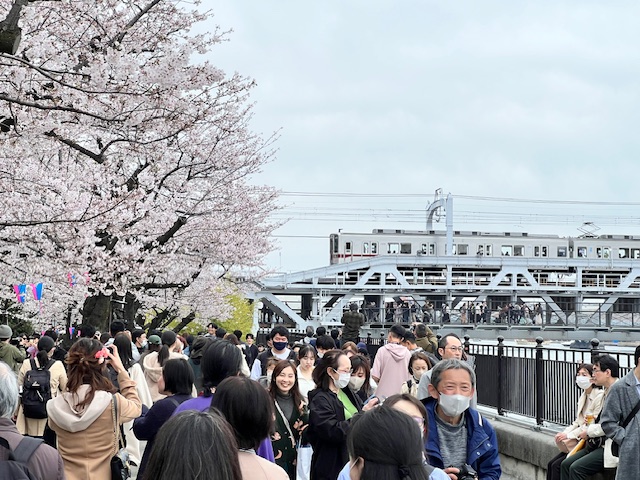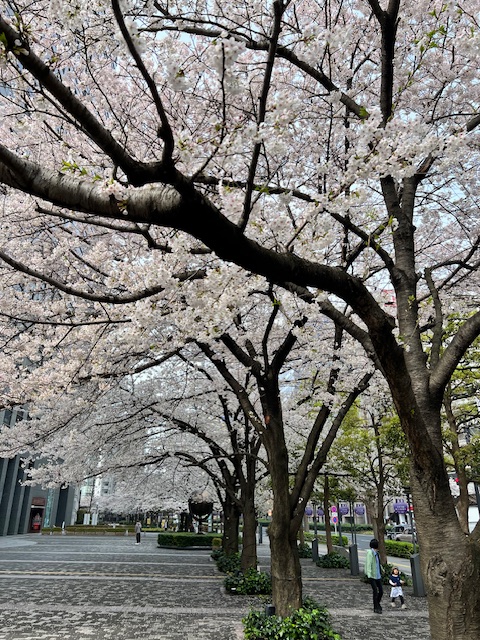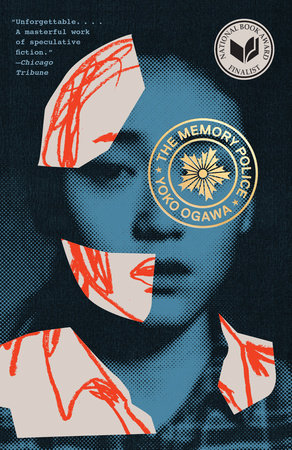In Which You Get Cherry Blossoms and Not So Much About Books
I can’t believe it has been a month since I have posted anything here on Vertigo, but I have been traveling for half of that period. My daughter, who is an attorney, and I went to Japan together. This is something we have talked about for years. This was my fourth trip and her first. We went to Tokyo and then on to the art island of Naoshima, in the Inland Sea.



The cherry trees blossomed a week late this year, which meant they were at their best the day we arrived.
A very energetic young chef in Shinjuku drains the water from the noodles for our ramen.
Naoshima (population about 3,100) is known for its contemporary art museums, architecture, and public art. You’ve probably seen images of Yayoi Kusama’s iconic pumpkin sculptures photogenically placed at the island’s edges. You feel as if you aren’t allowed to get on the outgoing ferry if you haven’t photographed them.






Lower level: Artworks by Richard Long, Bruce Nauman, and Hiroshi Sugimoto.
People leave money on one of several stone cats as a donation to a Shinto shrine on Naoshima.
While we were traveling, I began reading Yoko Ogawa’s dystopian novel The Memory Police (Vintage, 2019), translated from the Japanese by Stephen Snyder. One of the hot new books now (and one I will be reading next) is Percival Everett’s James, which is a remake of Mark Twain’s The Adventures of Huckleberry Finn from the perspective of the slave Jim. The Memory Police is almost a remake of Anne Frank’s The Diary of Young Girl, with Anne being the person who hides someone in grave danger. The Memory Police presents us with an island where things routinely go missing and then are forgotten by the island’s inhabitants. One day photographs are gone, another day calendars disappear. But there are a handful of people who genetically resist forgetting and who still remember all of the disappeared things, and it is the role of the Memory Police to find these people and make them disappear. The book’s narrator is a young woman who writes novels and who suddenly has to hide her editor in a secret room in her house when the Memory Police come after him.
It’s an elegantly written book. Ogawa writes simply and with great precision. The narrator is a keen observer of the world around her, of the way the snow falls, about how she feels when she realizes that something has disappeared. I am only halfway through the book, but it is very compelling. It’s not clear yet if there is a pattern or a purpose to the disappearances of the various objects that the islanders are being made to forget. There is great tension over the arrests and disappearances of people caused by the Memory Police, who are reminiscent of of the Nazi’s SS in 1930s Germany or of many other governmental paramilitary wings. There is a very human tenderness between the narrator, her editor (who is married and whose wife has just delivered a son), and an old man who is the narrator’s confidante in helping keep the editor hidden. I can’t decide how this book is going to end, if, as in The Diary of a Young Girl, the Memory Police are tragically going to find the editor, or whether he will somehow escape.



